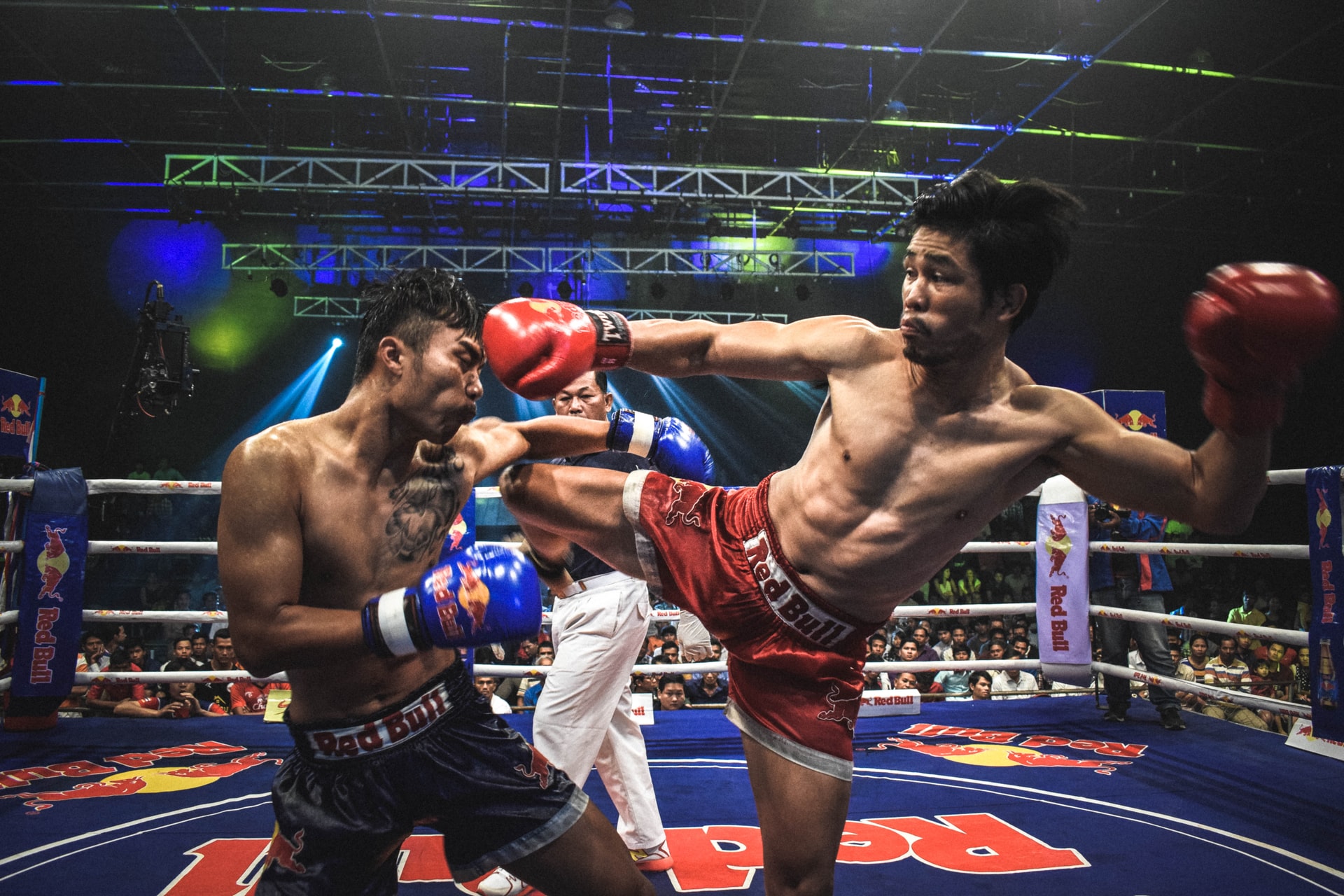Anger and rage can help you in a fight. The psychological allocation of resources towards an action associated with anger, like in boxing, can result in increased strength.
Anger is often viewed as a negative emotion, but does that mean it’s useless? You may have experienced that you feel more potent than usual when you are angry and wondered why it is so.
I have been boxing for years, and during that time, I have experienced that rage and anger are beneficial in a fight if used wisely.
In this article, I will explain why anger helps you while boxing and how you can manage your anger, rage, and fury effectively in a fight in the following order:
- Do you get stronger when angry?
- Does anger help you in a fight?
- How can anger help you win a fight
- Seven tips for using anger in fighting
- How anger affects the body
- Fighting angry vs. calm: which is better?
- What martial arts are best for anger management
Table of Contents
Do You Get Stronger When Angry?
We get stronger when angry because our brain releases norepinephrine and epinephrine, which are hormones that give us energy. Additionally, when we’re mad, our muscles tend to burn more calories than when we’re calm.
The jury is still out on whether or not being angry will make you win a fight. However, there is some evidence that anger does give people energy.
While it is unclear whether or not anger gives people actual strength in a fight- like being physically stronger- there is evidence to suggest that it provides a boost of energy that can help you last longer in a battle.
Does Anger Help You in a Fight?
There is some evidence that anger can help you in fights, specifically in terms of energy and focus. When you’re angry, your body releases adrenaline and testosterone, which give you energy and strength – that’s beneficial in a fight.
Additionally, when you’re angry, your heart rate and breathing are faster than they would be if you were calm. This means that you’re able to push yourself harder and longer during a fight.
Furthermore, when your heart rate is high, it’s easier for blood to flow to your muscles. So Anger does help in fights as far as energy and strength are concerned.
Anger is often seen as a negative emotion, but it can actually be helpful in some situations. For example, anger can help you focus and stay energized during a fight. It can also motivate you to defend yourself or your loved ones.
In some cases, anger can even help you take control of the situation. However, it is important to remember that Anger isn’t always a good thing and should be used in moderation. If used improperly, anger can lead to violence and actions having catastrophic consequences.
How Can Anger Help You Win a Fight?
Anger is a natural emotion that can help you fight. When you are angry, your body is mobilized and ready to fight. This increases your energy and allows you to be more focused. It also makes you more aggressive and determined.
When you are angry, you are likely to be more motivated to win the fight. Anger can give you a boost of energy and help you stay focused on the task at hand. This can help you get past obstacles or defend yourself from attacks.
Anger can also increase your resolve. When you feel angry, it motivates you to fight harder for your cause. This determination can help you succeed in difficult situations or in combat against powerful opponents.
7 Tips In Using Anger To Win Fights
Understanding how anger works can help you take advantage of its power. When you are angry, you are more focused and motivated toward your objective.
This focus can be beneficial when trying to accomplish a goal or defend yourself from an attack. By understanding how anger works, you can use it to gain a competitive advantage in any situation you find yourself in.
1. Don’t Get Emotional; Stay Focused on the Task at Hand
Your goal is always to be focused on the task at hand and not get emotionally invested in the situation. If you manage to do this, you will be more likely to come out on top in a fight.
Anger is an emotional reaction that often energizes you and gives you an enhanced will to fight. However, anger should never be the only motivator for you when it comes to fighting.
When you’re angry, it’s natural to want to lash out at whoever or whatever has angered you. However, this can be counterproductive because it can lead to a loss of focus and decrease your ability to wage an effective battle.
Use your rage to fuel your willpower but don’t let it take over your senses and charge head-on into a fight.
2. Don’t Take Things Personally
Remain calm, and don’t take things personally, especially during a fight. Stay objective and rational in the face of danger, no matter how intense it may be.
It can be challenging to maintain your composure when angry, especially if you feel that someone has wronged you. However, it’s essential not to take things personally. This means that you should never blame yourself for what has happened or how your opponent has behaved.
3. Keep a Cool Head in Tough Situations
Stay calm and collected throughout the ordeal, no matter how challenging it may be
Anger can make you feel powerful and capable, so you may turn to anger and rage when you’re under duress or losing control.
However, this feeling of power and strength is only temporary and can eventually lead to defeat. When you encounter difficult situations, it’s important not to let your anger get the best of you.
4. Use Your Anger Wisely
Use anger as a tool, not a weapon; use it to motivate yourself and make your opponent feel like they are in control of the situation.
Anger is a powerful tool that can help you achieve your goals if used correctly. However, there are certain situations in which anger isn’t appropriate or helpful. For example, if you’re hysterical or out of control, your anger won’t do any good.
It’s important to know when and how to use your anger wisely in order to achieve the results you desire. There is no one right way to deal with anger, but you’ll be on your way to a successful boxing career by following these tips.
5. Stand Up for Yourself and Fight Back With Strength and Poise
Use your body language and demeanor to assert your dominance over your opponent and gain control over the fight.
This is a difficult question to answer without knowing the situation’s specifics. However, it might be helpful to remember that anger can often make you more aggressive and combative.
This will make you stand up for yourself and fight back harder to protect yourself and your interests.
6. Use Anger as a Catalyst to Regain Control of a Fight
Use your rage and fury to turn the tables if you feel that your opponent has a competitive advantage over you in a fight.
Anger is a natural emotion that you can use to help in fights. Anger can help increase energy and motivation, which can help you regain control of the situation.
When the fight starts to go your opponent’s way, don’t be discouraged; use anger as a catalyst to regain control of the situation. Try to stay calm and focused, and use your anger as an advantage.
7. Know When to Stop
Don’t lose control over yourself, know when the fight is over, and stop yourself from overreacting.
When it comes to fighting, there are many things to consider. One of the most important things to keep in mind is when to stop. If you let anger get the better of you, it can lead to disastrous consequences.
For example, if you start swinging your fists wildly instead of using measured strikes, you’ll likely get injured or beat your opponent senselessly. If you’re able to control your anger and use it strategically, you will be in a much better position to win the battle.
How Does Anger Affect the Body?
Anger is an emotional response to a provoking event or feeling. It can be physical and involve changes in heart rate, breathing, and blood pressure. When anger is intense, it can lead to physical violence.
However, research on the relationship between anger and physical aggression is mixed. Some studies suggest that angry people are more likely to act aggressively than those who are not mad, while other studies find no link.
The cause of this confusion may be that different types of aggression are affected by anger in different ways. For example, fighting or threatening someone directly may be more likely to occur when someone is angry, but screaming or throwing objects may also occur under the influence of anger.
Overall, it seems that anger does affect the body in some ways- primarily by heightening aggressive urges- but it is difficult to determine precisely how this happens.
Fighting Angry Vs Calm: Which Is Better?
If you use your rage correctly, it can help you win fights and take control over situations. However, If anger is misused, it can lead to violence and other problems. So, it is vital to use anger in a controlled and strategic way.
Managing your anger is an integral part of boxing. It can help you win a fight, take control of the situation, and stay safe.
However, it’s important to use anger in a controlled and strategic way. If you struggle with anger management, talk to a therapist or practice acceptance criticism constructively.
Should You Fight When Angry or Calm?
It may not be the best strategy to fight when angry. Instead, try to remain calm and rational in order to achieve a resolution that both parties can agree on. In some cases, compromise may be the best solution regardless of how you feel at the moment.
Anger is a natural emotion that is often associated with strength and aggressiveness. However, anger can also be counterproductive when it comes to conflict resolution. For example, angry outbursts may lead to more conflict and less resolution. Additionally, when people are mad, they tend to revert to their default mode, which can be defensive and destructive.
What Martial Arts Is Best for Anger Management?
Martial arts such as MMA, Boxing, and Kickboxing are practical when it comes to using rage and anger to fight.
There is no one answer to this question as different people have different preferences for their martial arts. However, there are a few generalizations that you can make about which styles of martial arts are more effective at managing anger.
First, some martial arts styles are more physically demanding than others, which can lead to increased anger and adrenaline levels. This can make it easier to control and constructively channel those emotions.
Second, many martial arts styles involve sparring or competing with others, which can help develop discipline and self-confidence. When these skills are put into practice in other areas of life, they can be beneficial in maintaining composure and controlling anger.
Ultimately, the best way to manage anger is to find a style of martial arts that is right for you and that you enjoy practicing. If you find that your anger is becoming a problem in your life, consider trying one of the martial arts styles listed above.
They may be just what you need to manage your emotions constructively and ultimately achieve success in any challenging situation.
Conclusion
Anger can help you in a fight, but only if you use it wisely. Make sure to stay calm and focused, and you will be able to use your anger to your advantage.
Keep your rage in check and stay vigilant about your surroundings. This will effectively enable you to gain the advantage in any fight if you find yourself in such a situation.






